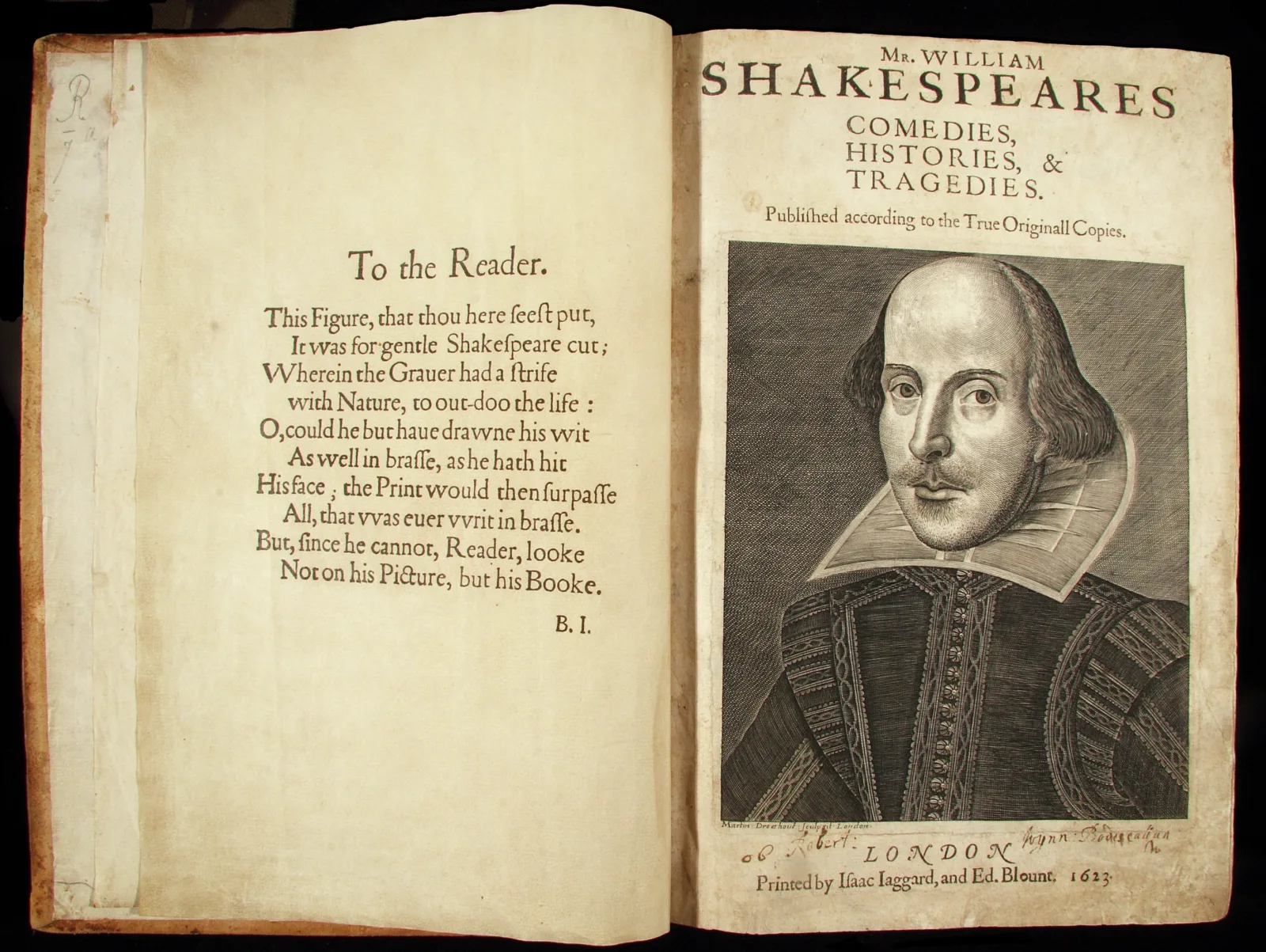Class Description
Newberry Adult Education’s “Master Class” series provides learners the opportunity to delve deep into a topic and examine thought-provoking insights with distinguished specialists in their fields. Participants may join the class either in-person or online via Zoom. Due to the large class size for the Master Class series, classes will primarily be lecture based.
What does a Shakespeare editor do and why does it matter to the general reader? How does our understanding of King Lear change in important ways when we compare the two published texts of the play? Why, in moments of intense emotion, do Shakespeare’s characters—Lady Macbeth, Juliet, King Lear—address forces in the universe in a rhetorical figure known as the apostrophe?
The Newberry celebrates the 400th anniversary of Shakespeare’s First Folio with three distinguished Shakespeare scholars who will bring us closer to understanding this great playwright.
Session 1: Suzanne Gossett
Why do we need new editions of Shakespeare’s works? What does an editor do, anyway, other than modernize old spelling? This class will demonstrate the decisions an editor makes and why– adding stage directions where needed, emending clearly faulty texts, choosing between different versions of the same play. Hamlet mutters, “More than kin and less than kind” in Hamlet, 1.2. Is that an aside directed to the audience or a rebuke directed at Claudius? The editor must decide, and the difference in interpretation matters greatly. These and other examples will make clear why Shakespeare’s text need editors and how editorial choices affect critical interpretation.
Session 2: Richard Strier
In the early 1980's, Shakespeare scholars recognized that the two texts of King Lear – the Quarto and Folio versions – could not simply be conflated. In some cases, conflation produced nonsense, other times it was simply impossible; for instance, the two texts have different speakers for the final lines. The two versions – both unquestionably written by Shakespeare – are different takes on the same story. This led scholars to edit them separately, and to think about doing this with the other plays that we have in two early editions, about half of all these works. We now view Shakespeare as someone who continued to revise his plays.
For this session, we will consider specific differences between the two early texts: one in the first scene clearly meant as an important clarification; one single-word change, which only an author would make, that points to a major theme; three major cuts, of a memorable episode, a whole scene, and almost half a scene; and finally, the ways Lear's death is handled differently in the two versions.
Session 3: Gail Kern Paster
Sometimes, at moments of intense emotion, Shakespeare’s characters turn away from their immediate circumstances and directly address forces in the universe. In doing so, they employ a figure of speech – inherited from classical rhetoric – known as dramatic apostrophe. Here are three famous examples: “Gallop apace, ye fiery-footed steeds,” cries an impatient Juliet, “and Romeo/ Leap to these arms, untalked of and unseen.” Out on the heath, King Lear commands the winds to blow and “crack your cheeks!” Lady Macbeth, fearful of her ability to commit murder, asks the spirits “that tend on mortal thoughts” to “unsex me here.” We will discuss these three great, memorable set-piece speeches in detail in order to understand better why Shakespeare turns to apostrophe in the depiction of character and emotion.
About the Instructors
Suzanne Gossett is Professor Emerita of Loyola University Chicago. Her most recent book is Shakespeare and Textual Theory. She is a General Textual Editor of the Norton Shakespeare Third Edition and General Editor of the series Arden Early Modern Drama. She has edited many plays by Shakespeare and his contemporaries, including Pericles and All’s Well that Ends Well for the Arden Shakespeare, A Fair Quarrel for the Collected Middleton, Philaster for AEMD, and Eastward Ho! for the Cambridge Works of Ben Jonson.
Gail Kern Paster is Interim President and Librarian of the Newberry Library. She is the Director Emerita of the Folger Shakespeare Library in Washington DC and Editor Emerita of Shakespeare Quarterly, published by the Folger. The author of several monographs and numerous scholarly essays on early modern drama, she specializes in Shakespeare and the history of emotions.
Richard Strier, Frank L. Sulzberger Distinguished Service Professor Emeritus of English at the University of Chicago, is the author of Shakespearean Issues: Agency, Skepticism, and Other Puzzles; The Unrepentant Renaissance from Petrarch to Shakespeare to Milton – which won the Warren-Brooks Award for Literary Criticism; Resistant Structures: Particularity, Radicalism, and Renaissance Texts; and Love Known: Theology and Experience in George Herbert's Poetry.
Materials List
Required
- Digital Course Packet
- King Lear, any standard edition.
First Reading
- Please read the following passages found in your Digital Course Packet: King Lear, 1.4 267-327, Othello, 4.3, Hamlet 3.4 1-25, 4.4, and 5.2 200-295
Cost and Registration
Three sessions, $200 ($180 for Newberry members, seniors, and students). Learn about becoming a member.
To register multiple people for this class, please go through the course calendar in Learning Stream, our registration platform. When you select the course and register, you’ll be prompted to add another registrant.
Support the Newberry
Your generosity is vital in keeping the library’s programs, exhibitions, and reading rooms free and accessible to everyone.
Make a Gift